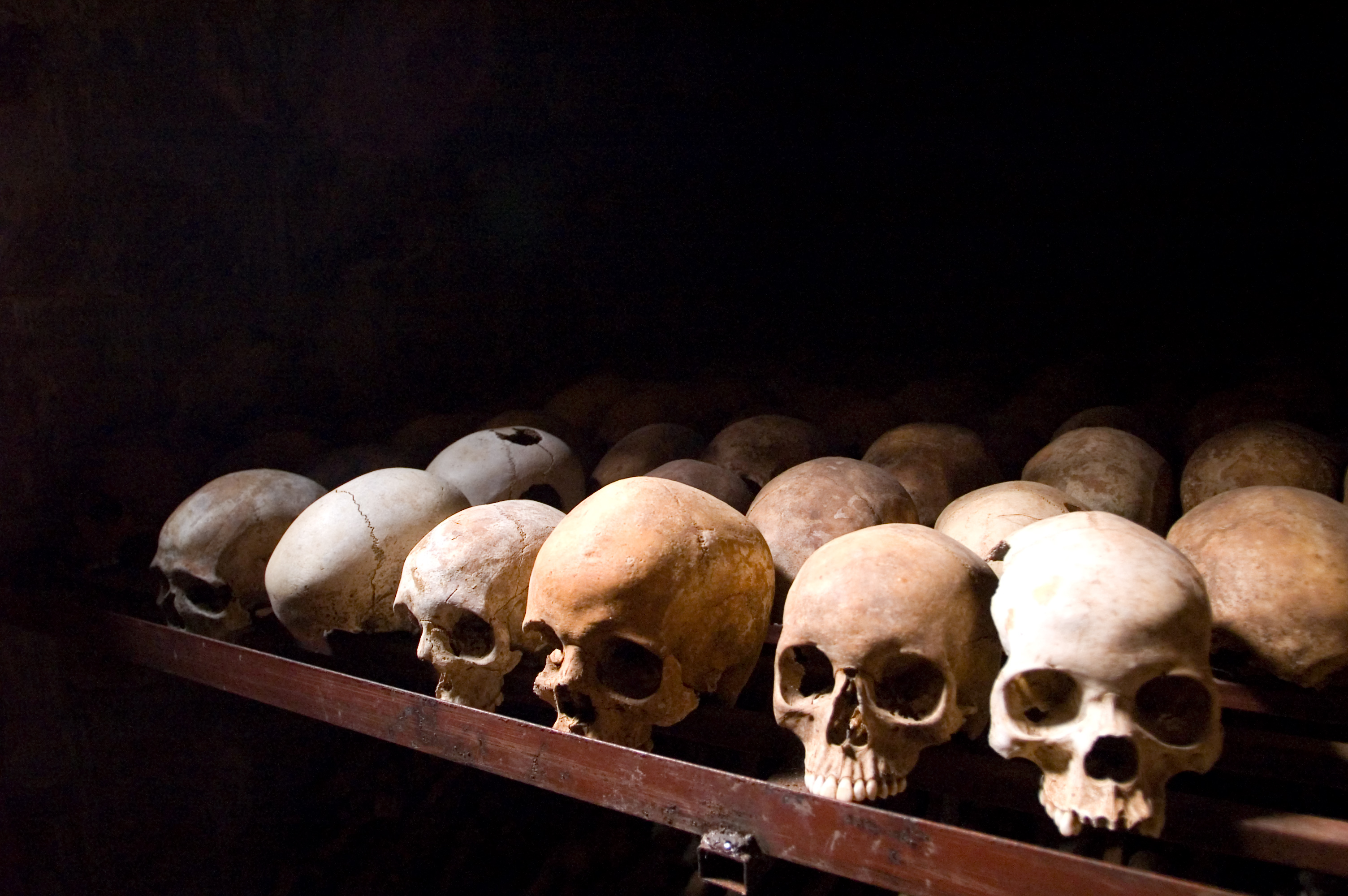
Genocide
Genocide is the intentional destruction of a people[a] in whole or in part.
For other uses, see Genocide (disambiguation).
In 1948, the United Nations Genocide Convention defined genocide as any of five "acts committed with intent to destroy, in whole or in part, a national, ethnical, racial or religious group". These five acts were: killing members of the group, causing them serious bodily or mental harm, imposing living conditions intended to destroy the group, preventing births, and forcibly transferring children out of the group. Victims are targeted because of their real or perceived membership of a group, not randomly.[1][2]
The Political Instability Task Force estimated that 43 genocides occurred between 1956 and 2016, resulting in about 50 million deaths.[3] The UNHCR estimated that a further 50 million had been displaced by such episodes of violence up to 2008.[3] Genocide, especially large-scale genocide, is widely considered to signify the epitome of human evil.[4] Genocide has been referred to as the "crime of crimes".[5][6][7]
Crime
Pre-criminalization view
Before genocide was made a crime against national law, it was considered a sovereign right.[48] When Lemkin asked about a way to punish the perpetrators of the Armenian genocide, a law professor told him: "Consider the case of a farmer who owns a flock of chickens. He kills them and this is his business. If you interfere, you are trespassing."[49] As late as 1959, many world leaders still "believed states had a right to commit genocide against people within their borders", according to political scientist Douglas Irvin-Erickson.[48]